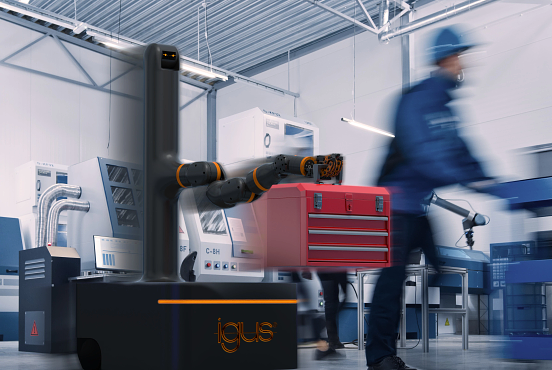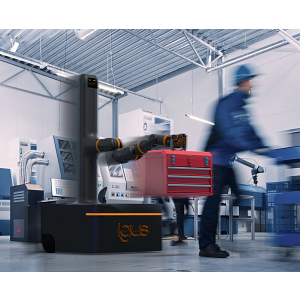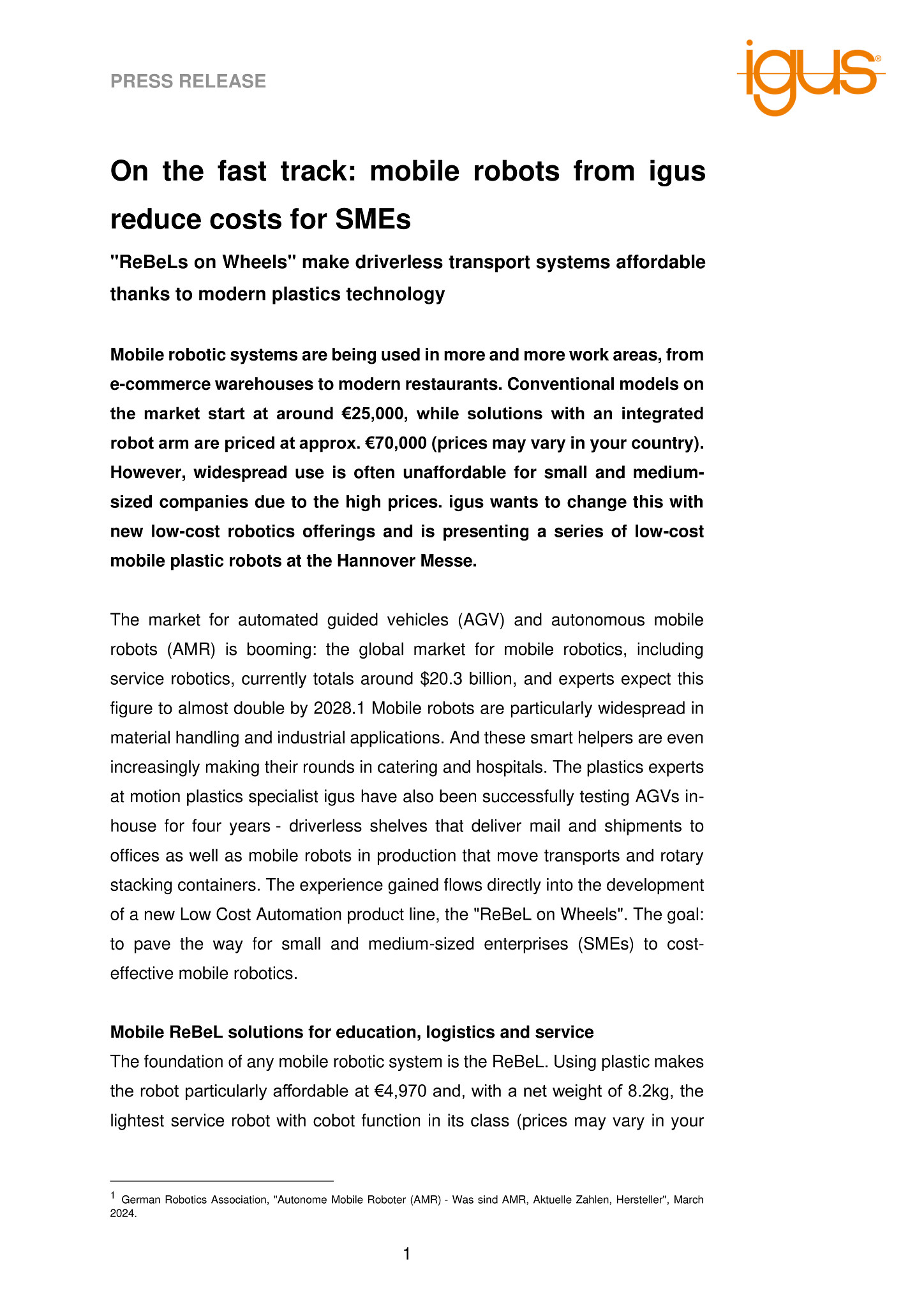On the fast track: mobile robots from igus reduce costs for SMEs
May 12, 2024
“ReBeLs on Wheels” make driverless transport systems affordable thanks to modern plastics technology

“ReBeLs on Wheels” make driverless transport systems affordable thanks to modern plastics technology
Mobile robotic systems are being used in more and more work areas, from e-commerce warehouses to modern restaurants. Conventional models on the market start at around €25,000, while solutions with an integrated robot arm are priced at approx. €70,000 (prices may vary in your country). However, widespread use is often unaffordable for small and medium-sized companies due to the high prices. igus wants to change this with new low-cost robotics offerings and is presenting a series of low-cost mobile plastic robots at the Hannover Messe.
The market for automated guided vehicles (AGV) and autonomous mobile robots (AMR) is booming: the global market for mobile robotics, including service robotics, currently totals around $20.3 billion, and experts expect this figure to almost double by 2028. Mobile robots are particularly widespread in material handling and industrial applications. And these smart helpers are even increasingly making their rounds in catering and hospitals. The plastics experts at motion plastics specialist igus have also been successfully testing AGVs in-house for four years – driverless shelves that deliver mail and shipments to offices as well as mobile robots in production that move transports and rotary stacking containers. The experience gained flows directly into the development of a new Low Cost Automation product line, the “ReBeL on Wheels”. The goal: to pave the way for small and medium-sized enterprises (SMEs) to cost-effective mobile robotics.
Mobile ReBeL solutions for education, logistics and service
The foundation of any mobile robotic system is the ReBeL. Using plastic makes the robot particularly affordable at €4,970 and, with a net weight of 8.2kg, the lightest service robot with cobot function in its class (prices may vary in your country). Without exception, igus develops and manufactures all mechanical components that make up the ReBeL.
Its payload amounts to 2kg and it has a reach of 664mm. Various moving systems are planned in which the ReBeL is centrally integrated: igus is launching an affordable version for the education sector for €14,699 – including the robot arm (prices may vary in your country). Based on open-source software and equipped with a gripper, the ReBeL EduMove serves as an autonomous learning platform for educational institutions. It has a modular design, so that other functions can be added, such as lidar, camera technology or a slam algorithm. Another version is an automated guided vehicle for SMEs, which can transport up to 30kg. With the optional ReBeL, simple A to B positioning tasks can be carried out. It dispenses with expensive sensor technology and instead relies on 3D sensor technology developed in-house. Its price is €17,999 (prices may vary in your country). In addition, igus will be presenting the study of a low-cost service robot in Hanover. The ReBeL Butler is suitable for simple but time-consuming pick-up and delivery services, for example in the hotel and catering industry.
A lighthouse project on wheels
The goal of all these developments is the lighthouse project, a mobile robot with integrated HMI and vision that would even be able to tidy up an office on its own. “With this project, we are pursuing a bottom-to-top strategy in which certain components such as safety laser scanners are not included in the basic package so as to keep the price low,” explains Alexander Mühlens, Vice President and Head of the Low Cost Automation Business Unit at igus. “Nevertheless, the solution can be retrofitted for industrial requirements.” This year, igus will be presenting an affordable gripper with a large stroke and travel that offers a high degree of flexibility when gripping different geometries, among other things. Says Mühlens: “The areas of application for this planned low-cost AMR are extremely diverse and go far beyond simple transport tasks. They cover a huge range of use cases in different areas of life, such as cleaning tasks or serving coffee directly at the workplace.”



